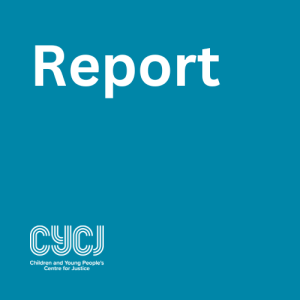To help you keep informed and continue your professional development, we’ve provided free access to the latest youth and criminal justice information, including government consultations, newsletter and conference materials, and national standards and guidelines.

Secure Care in Scotland: Looking Ahead
Secure care is the most intensive and restrictive form of alternative care in Scotland. Though the numbers of children and young people secured each year

Movement Restriction Conditions (MRCs) and Youth Justice in Scotland: Are we there yet?
Movement Restriction Conditions (MRCs) were introduced in Scotland as part of the Antisocial Behaviour etc. (Scotland) Act 2004. Although as highlighted by Orr (2013), their

Positive Youth Justice: Children First, Offenders Second: presentation
This presentation was delivered by Professor Stephen Case (Loughborough University) at a joint CYCJ/University of Strathclyde School of Social Work and Social Policy seminar on

EEI – ‘The clue is in the name’
Early and Effective Intervention (EEI) is based on the principles of Getting It Right For Every Child (GIRFEC). The aim of this paper, written by

Developing Capacity and Improvement Group – June 2016
These notes are from the Developing Capacity and Improvement Implementation Group meeting that took place on June 1, 2016. The Implementation Groups were set up as part of

Evaluation of the Barnardo’s Safer Choices Missing Service
Research shows that children and young people who go missing from home are at a considerably higher risk of being harmed. In April 2013, in

“Between a rock and a hard place”: Responses to Offending in Residential Childcare
There is current and ongoing concern regarding the potential criminalisation of looked after young people. To address these issues, CYCJ undertook a study which aimed to: gather

CYCJ e-bulletin, September 2016
This month, we’ve been inspired by Who Cares, motivated to improve outcomes for care leavers and excited about our new events

Info Sheet 54: Healing Trauma and Managing Violence Risk through Relationships – Lessons from Dyadic Developmental Practice: Psychotherapy and Parenting (DDP)
Dyadic Developmental Practice (DDP) is a model which may offer services permission to focus on the provision of safe, nurturing and coherent responses to the



